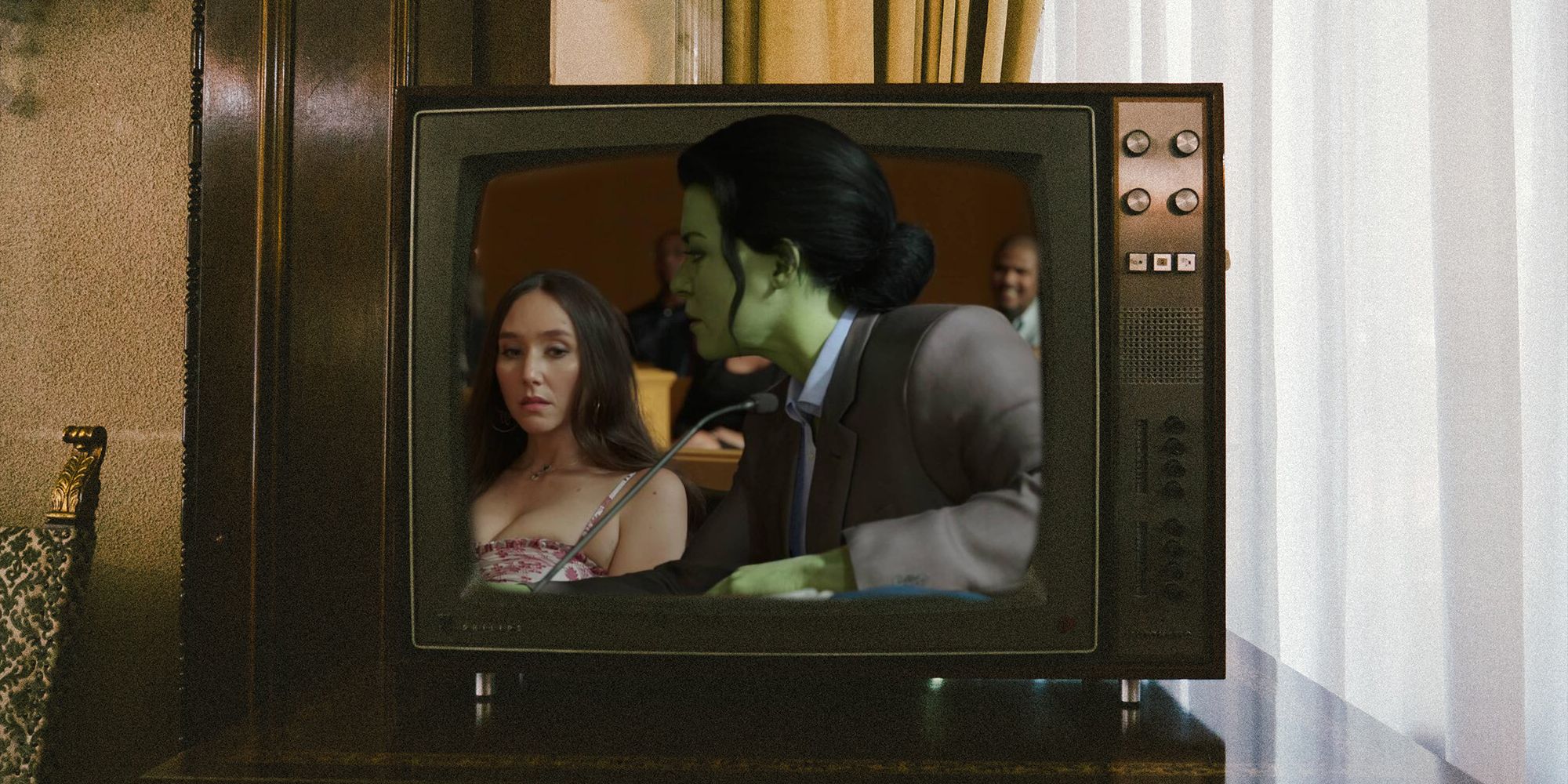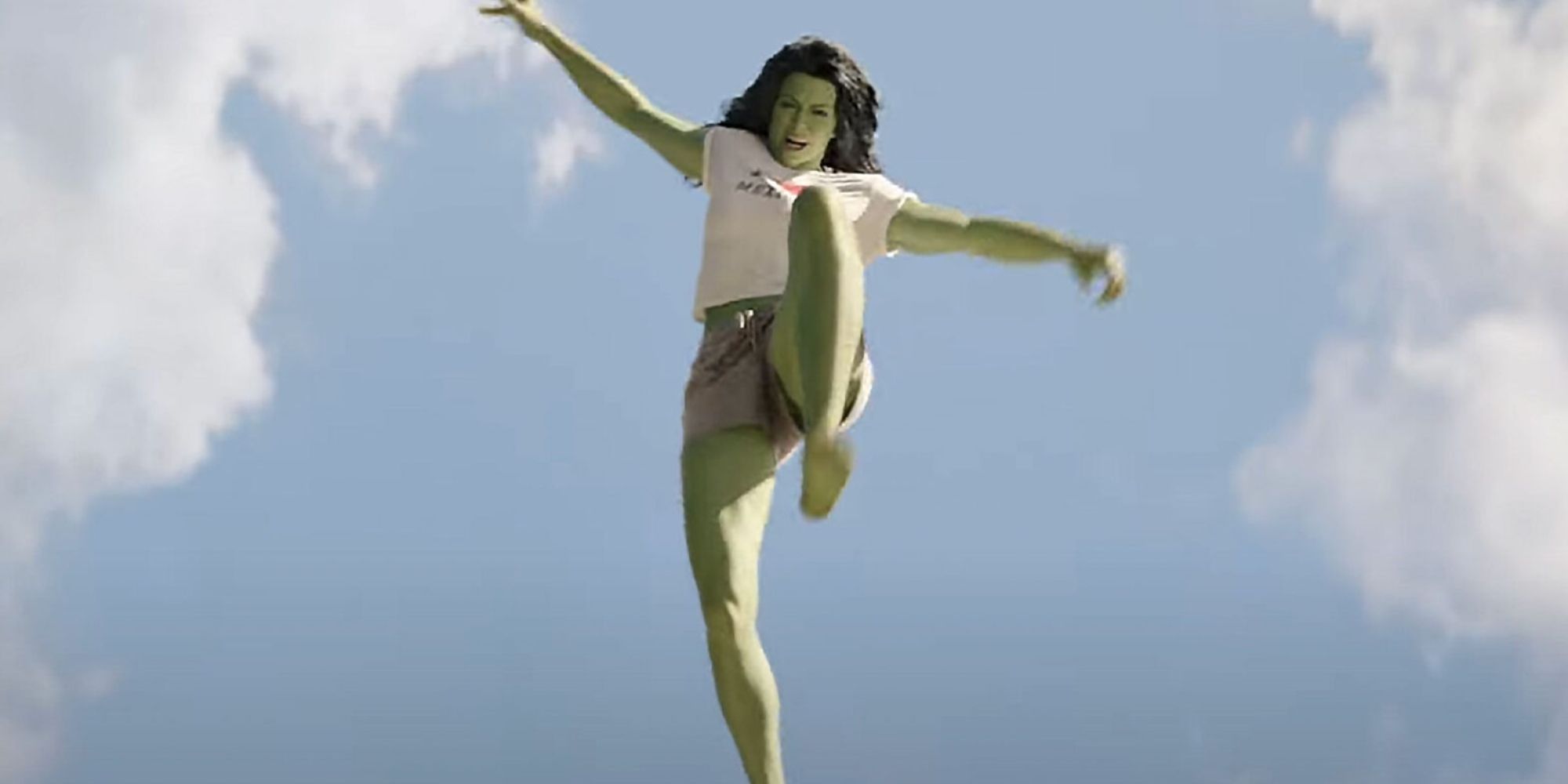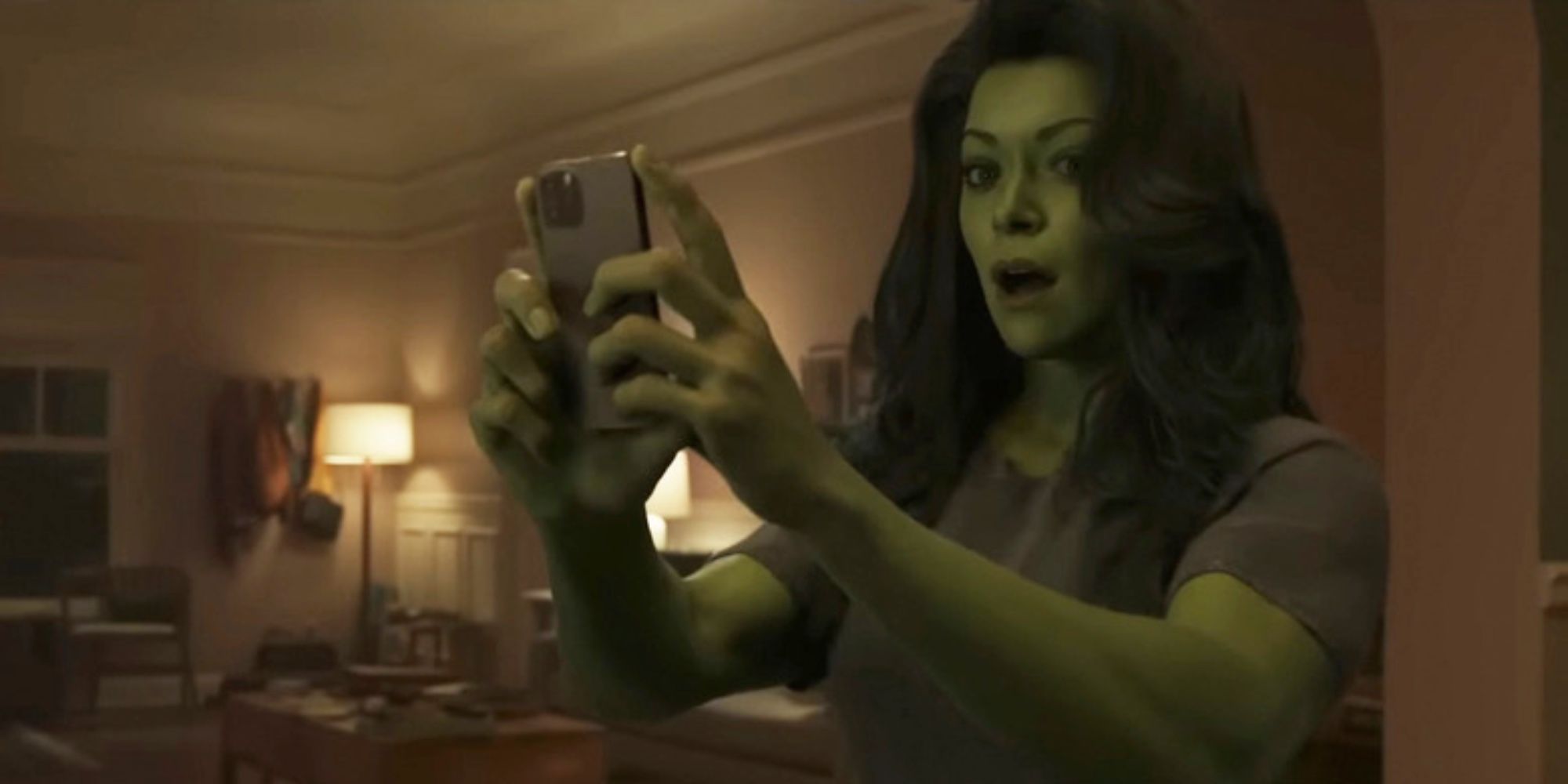This article contains spoilers for episodes 1-4 of She-Hulk: Attorney at Law.
Game of Thrones was the first HBO show I got into and, a decade ago, the shortened 10 episode seasons which forced the showrunners to cut filler was a major selling point. I had watched as Lost spun its wheels for multiple seasons, and was grateful for a model that seemed designed to get to the good stuff. Now, 10 years later, every show I watch is on a streaming platform, and just about every original series has adopted premium cable’s model. Television has never been shorter, and yet, it seems like there’s less good stuff to get to.
The majority of TV now has, at most, 10 episodes. Some, like the MCU and Star Wars shows on Disney+ have even less. Loki, Falcon and the Winter Soldier, Moon Knight, Ms. Marvel, Hawkeye, and Obi-Wan Kenobi all had six. As a result, all of those shows, to varying degrees, feel more like drawn out six hour movies than real TV. Miniseries are extremely popular with streamers, but can feel like a bit of a no man’s land — not quite a movie, not quite a TV show — and Disney’s shows have suffered from being squeezed (and stretched) into that format.
She-Hulk: Attorney at Law, on the other hand, really feels like a TV series. It isn’t a particularly good one. The jokes are cringe-y and the CGI is dodgy, which causes the whole show to exist in a kind of tonal uncanny valley. But, structurally, I like what it’s doing. Four episodes in, She-Hulk has established a few central characters who show up in each episode. It has a case-of-the-week format, that makes each feel distinct, while still fitting within the formula. And it has guest stars, like Mark Ruffalo, Megan Thee Stallion, and Tim Roth, who give each episode a slightly different flavor. It's a formula sitcoms struck upon 3 decades ago but it feels fresh after years of protracted narratives.
While WandaVision tackled big themes like loss and grief, and Loki tackled big ideas like time travel and the multiverse, each episode of She-Hulk has pleasantly small stakes. When, in the most recent episode, a magician opened a portal and accidentally unleashed a flock of Gremlin-sized demons, there was never any chance that this was going to escalate to the end of the world. The threat was fully contained within a few minutes, and the main tension as Jennifer went to fight them, was whether she would get home before the hot, sensitive guy she met through the show’s Tinder equivalent got tired of waiting for her. That’s a nice low-stakes issue that feels right for TV.
Additionally, She-Hulk getting nine episodes, instead of six, means that it has time to let multiple pots simmer, the A-plot can go on the backburner and other stories can start and be wrapped up in that time. While Moon Knight had one narrative that stretched unbroken across six episodes, She-Hulk has several hanging threads. Why is Bruce Banner in space? Will Emil Blonsky really abide by the terms of his parole? Will Jen find a good guy on Matcher? What’s going on with Jameela Jamil’s character, Titania?
Generally, She-Hulk is much more concerned with what gaining superpowers means for Jen, as a character, than what it means for the world. Like Mary Tyler Moore before her, Jen has to balance her career, her love life, and her friendships. Unlike the female leads of sitcoms past, though, Jen has to balance those challenges with the struggle of being a Hulk. Though set against the backdrop of superheroics, her problems are small and mundane.
That’s the kind of problem that episodic TV is best suited at addressing. TV as a medium has, historically, been defined by the amount of space it needs to fill up. The twenty-six episode run that network TV shows typically had for the better part of a century wasn’t set because it was the best way to tell a story. It was because it could consistently fill a network’s schedule from the beginning of the fall through the end of the spring. As a result, TV got good at telling the kinds of stories that could last that long. It’s very difficult, if not impossible, to fill 26 episodes with one gripping, important narrative told over half a year. To deal with this, TV got good at developing characters that audiences liked and wanted to hang out with, week after week, even if their story wasn’t going anywhere especially noteworthy during this week’s half hour. This reached its apotheosis with Seinfeld, the show about nothing.
She-Hulk is working in that tradition. It isn’t especially good. But it is TV, and I've missed TV.



